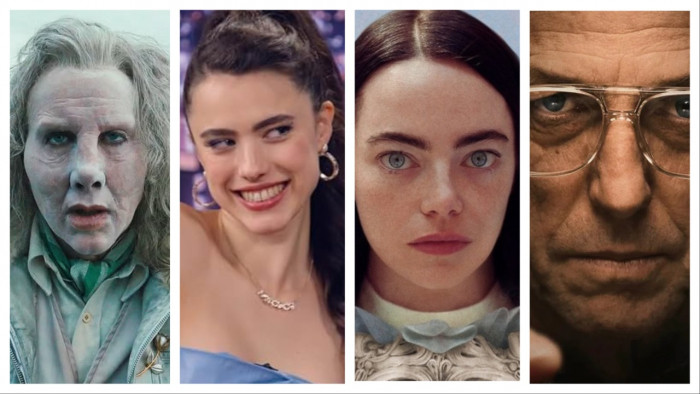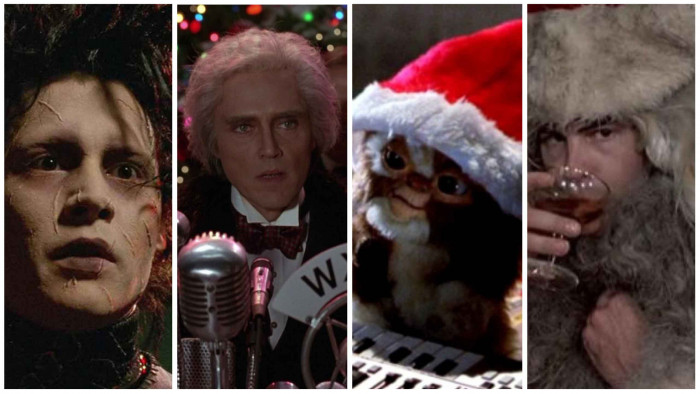James Hunt was a team principal’s nightmare and a booze sponsor’s dream. Tom Ellen, alongside filmmakers, friends and Niki Lauda, goes in search of an icon
October 1976 found James Hunt on the verge of the biggest race of his life: the first ever Formula 1 Japanese grand prix. He was going into the event trailing his arch rival, Austrian driver Niki Lauda, by just three points, meaning a half-decent finish could easily see him crowned F1 champion. So how, you may ask, did Hunt choose to spend those last precious, nervous, gut-wrenching days before the chequered flag was waved at Fuji Speedway?
He slept with 33 British Airways air stewardesses. That number again: 33. His hotel, the Tokyo Hilton, served as a stop-off point for BA staff and, in less than two weeks, 33 female flight attendants cheerfully accepted Hunt’s advances.
“Every morning there was a fresh supply of females,” chuckles Alastair Caldwell, Hunt’s team manager during the ’76 season. “James would bounce up to them in his shorts and bare feet, say, ‘Hello, I’m James Hunt,’ and take them straight upstairs for a party. This happened every day for a fortnight.”
It sounds like a punishing routine. It sounds like work rather than fun.
But that was the thing with James Hunt; when it came to work and fun, he had trouble distinguishing between the two. In an interview conducted shortly before this bedroom stewardess marathon, he claimed: “I enjoy my work, but it’s all fun to me. I have a lot of fun... It’s a question of how you want to do it: do you go at a steady pace for 70 years, or do you go flat out for 10 years, then relax? I rather like doing it that way.”
He stayed true to his word. In 1979, after a decade of going “flat out”, both on and off the track, Hunt retired from professional racing aged just 31. As Rush – a new film based on his tumultuous 1976 F1 season – hits cinemas, ShortList enlisted Hemsworth, along with director Howard, writer Peter Morgan, Caldwell and nemesis Lauda to paint a picture of a life lived at 200mph.
Breakfast of champions
James Hunt wasn’t supposed to be a racing driver. His father was a straitlaced Surrey stockbroker, his academic talent suggested a career in medicine, and his accent – the kind of comically posh, BBC World Service brogue that’s almost extinct in 2013 – could probably have opened doors in Westminster on its own.
However, a chance trip to Norfolk’s Snetterton Circuit on the eve of his 18th birthday promptly closed off every other career route except driving.
“It was instant commitment,” Hunt remembered later. He charged his way up the motorsport ladder, progressing quickly through Formula 3 into Formula 1 by 1973, earning the nickname ‘Hunt The Shunt’ en route, due to his rambunctious overtaking style (although F1 boss Max Mosley later claimed, “He didn’t actually shunt more than anyone else; it just happened to rhyme”).
He made a sizeable impression away from the asphalt, too. He would turn up to formal black-tie events barefoot, in T-shirt and jeans, his long blond locks stubbornly uncombed. He’d smoke joints and swig champagne minutes before a race, in shabby red overalls bearing the slogan: ‘Sex: Breakfast Of Champions’. He once even further, erm, ingratiated himself with British Airways top brass by urinating on the curtain that separated first and club class during a particularly boozy flight.
Put simply: by the end of 1975, despite one grand prix victory and a freshly inked contract with McLaren, Hunt was still more rock star than respected sportsman. By October 1976, he would be both.
Crash and burn
“I could do a three-year TV series on that ’76 F1 season,” Ron Howard grins when we meet in London to discuss Rush. “There was so much cool sh*t going on.”
Arguably the coolest of all that cool sh*t was the burgeoning rivalry between Hunt and Lauda. The pair had known each other since their Formula 3 days, but their equally rapid ascents to the big time seemed to be where all similarities ended. Since signing for Ferrari in 1974, Lauda had established himself as a kind of anti-Hunt; an ostensibly humourless, technically minded outsider, who would rather concentrate on shaving a millisecond off his lap time than hitting air stewardess double figures.
“People were captivated by the rivalry because of the difference between us,” Lauda tells ShortList. “James was the playboy, I was the serious guy. Off the track, James and I were great friends, but on it, we were enemies. He was really quick, so I had to find ways to beat him.”
To do this, Lauda relied on meticulous vehicular tinkering and detailed racetrack study to improve his own performance, while Hunt continued a more unorthodox approach to preparation.
“I remember the night before the Canadian grand prix,” says Caldwell. “There was a band playing at our motel, and James had pulled the lead singer; a blonde Stevie Nicks-type. We sat there drinking, and every time she finished a set, James would take her upstairs and give her one, then she’d come down and go back on stage. I left him at midnight, and he was still drinking and waiting for her next set break. Next morning, he was bleary-eyed, obviously hadn’t slept, but he went straight off and won the race.”
Despite Hunt’s unique (and weirdly effective) pre-race preparations, however, the biggest story of the season took root during the West German GP in August. In torrential rain at the famously perilous Nürburgring circuit, Hunt finished first, while Lauda lost control, ploughed into the barriers, and remained trapped in his blazing Ferrari for almost 45 seconds.
“I have no memory of it,” says Lauda. “I remember leaving the pits, then nothing until two hours after [the crash] when I asked the helicopter pilot how long the flight to the hospital would take.”
Of course he did: a stickler for detail until the end. And it very nearly was the end. While Hunt continued to chalk up GP victories (and, presumably, bedpost notches), Lauda was strapped to a respirator and forced to undergo excruciating facial surgery, having lost his right ear, eyelids and hair to the flames that had swallowed him. But the drama didn’t end there. Within just six weeks, against the advice of every doctor in his immediate vicinity, a monstrously scarred Lauda was back in the driving seat for the Italian GP.
“James saw me and said: ‘You look better now than before,’” he chuckles, with remarkable good humour for a man discussing the loss of half of his own face. “With motor racing, the longer you are out, the more the fear builds up. So I just wanted to get back as soon as I could.”
Miraculously, Lauda regained a marginal lead heading into the final race of the season – the Japanese GP – whereupon Hunt, invigorated by a fortnight attending to flight attendants, finished third to snatch the title from the Austrian by a single point. His status as legendary sportsman (rather than just legendary lothario) was secure.
A different breed
“He was totally unique,” recalls Lauda when we ask about Hunt’s conduct during that triumphant season. “To perform that well, and live that kind of lifestyle… There is definitely no one like him now.”
This is undoubtedly true. Here in sterile, media-trained 2013, a sportsman has to do little more than participate in Movember to be instantly dubbed a ‘character’. Hunt’s long list of eccentricities, on the other hand, make Mario Balotelli look more like Gareth Southgate. This was a man who would often sit his Alsatian dog up at the table with him in expensive Mayfair restaurants, and publicly thanked Richard Burton – who’d shacked up with his ex-wife in 1976 – for doing him “a wonderful turn by taking on the most alarming expense account in the country”.
But it was more than his tabloid-baiting ‘playboy’ antics that made Hunt a genuine one-off. Having an eye for the ladies is hardly an obsolete trait in today’s sportsmen (see Tiger Woods and Ryan Giggs, for starters), but while modern ‘playboy’ sports stars resort to gagging orders and tearful public apologies to cloak their actions, Hunt never once tried to hide his behaviour. He was always totally frank about the way he acted and, for that, people loved him.
“Everybody I talked to about James unanimously adored him,” says Howard. “Because he was an open book; he didn’t pretend to be anything other than who he was. People acknowledged his foibles, his recklessness, but those weren’t his defining characteristics for them.”
Of course, the reason Hunt felt comfortable living life to the fullest in such a brazen a manner was, in part, down to the era he lived in. Firstly, as Hemsworth (the man tasked with playing him in Rush) points out, “Back then, you could act like that and people would just read about it and wonder if it was true. There was a mythical element to it. Now, [with cameraphones], there’s actual footage of that stuff, and it isn’t usually as flattering as the mythical stories.”
More importantly, though, Formula 1 was a completely different animal in the Seventies. Nowadays, notes Caldwell, thanks to vastly improved technology, “drivers crash badly, flip the car, then get out and trot back to the pits”. In Hunt’s heyday, however, being an F1 driver genuinely meant staring down the Reaper every time you showed up for work.
“Every race could have been our last,” says Lauda. “One or two drivers always got killed each year, so we were constantly on edge, wondering if it was going to be our turn. That’s why our lifestyle was more excessive; there was no time to be lost.”
“It was a Blitz mentality,” adds Rush screenwriter Peter Morgan. “There was a feeling [among F1 drivers] of, ‘I really could die tomorrow,’ and if you could die tomorrow, how are you going to spend tonight? You’re not f*cking going to bed at 9pm, are you? For modern F1 drivers, there is almost zero possibility of death. These guys are thinking about careers and grandchildren in the way you and I might. For them, it is worth going to bed at 9pm.”
With this in mind, it’s easy to see why Hunt was so hell-bent on going “flat out” before he could finally afford to relax. When he died suddenly of a heart attack in 1993, just hours after proposing to his long-term girlfriend. He was teetotal, spending his days breeding budgerigars and generally taking relaxation very seriously.
“I was so shocked when James died,” Lauda remembers. “It’s sad that he is not here today, so we can sit and watch Rush together.”
It’s certainly interesting to imagine what Hunt would have made of the film, as well as his reputation as one of Britain’s greatest sporting mavericks. When asked, back in 1976, if he even considered himself a ‘playboy’, he simply shook his shaggy blond mane and laughed. “I don’t know,” he said. “I like playing.”
Rush is at cinemas nationwide from 13 September
(Images: Rex Features; Getty)
Latest
Related Reviews and Shortlists


The best movies of 2024


The best movies on Netflix: this is what to watch








